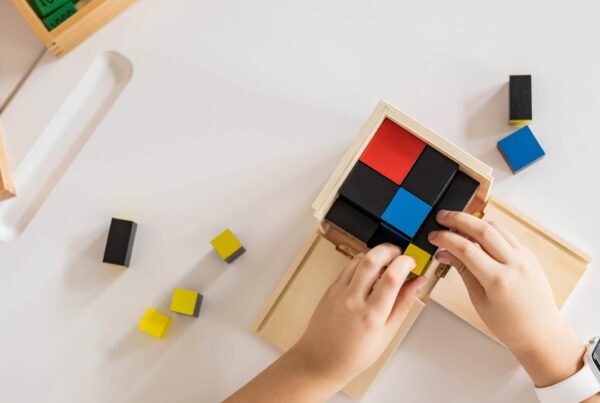In the pursuit of academic excellence and personal development, establishing a tailored study routine can be the cornerstone of success. Crafting an ideal study routine involves more than just allocating time for reading; it necessitates a holistic approach, integrating motivation tactics, selecting conducive study environments, leveraging tech tools, and aligning with one’s personality traits. This guide delves into the intricacies of creating a study routine that not only reflects your individual needs and goals but also stands the test of time, fostering both academic achievement and personal growth.
The Importance of a Personalized Study Plan
A personalized study plan serves as a roadmap, guiding you through your educational journey with precision and purpose. It goes beyond generic schedules, incorporating your learning pace, subject complexities, and personal commitments into a structured framework. The benefits are manifold; it enhances time management, reduces stress by breaking down your syllabus into manageable chunks, and improves retention rates through consistent revision. Crafting a plan that resonates with your learning style and life’s rhythm is not just beneficial but essential for sustained academic success. Let’s dive into understanding how can you create a perfect study plan for yourself
1. Select Your Serene Study Haven
The environment in which you study plays a critical role in the effectiveness of your learning. A serene study haven, free from distractions and conducive to concentration, can significantly enhance your study sessions. This could be a quiet corner in a library, a dedicated desk at home with some background music, or even a peaceful outdoor spot. Equipping your chosen haven with the necessary study materials and ensuring a comfortable seating arrangement can further optimize your study experience. Personalizing your study space can create a more inviting and motivating environment. Adding elements that inspire you, such as motivational quotes, personal achievements, or even a small plant, can boost your mood and productivity. Lighting is another crucial aspect to consider; natural light is ideal, but if that’s not possible, ensure your space is well-lit with artificial lighting that’s easy on the eyes. The key is to find a space that resonates with your personality and study preferences.
2. Craft Effective Study Routines for Different Times of the Day
The circadian rhythm, or internal clock, plays a significant role in determining our peak productivity periods. For morning people, starting the day with the most challenging subjects when their energy levels are high can be beneficial, while night owls might find their stride later in the day. Additionally, understanding the importance of quality over quantity when planning study sessions is crucial. Instead of setting unrealistic goals of studying for long hours, aim for shorter, more productive periods where your focus is at its peak. Structuring your study routine to leverage these natural inclinations can enhance focus and retention.
3. Determine the Optimal Duration for Study Sessions
The duration of study sessions can significantly impact learning efficiency. While it’s tempting to marathon study, especially when deadlines are looming or exams are just around the corner, research suggests that this approach might not be the most effective. Instead, shorter, more focused sessions followed by breaks can enhance retention and prevent burnout. Finding the right balance that works for you is crucial for building a sustainable and productive study routine. This involves taking into consideration your attention span, which can vary greatly from person to person, and the subject matter at hand. For instance, complex topics or those that require deep concentration may benefit from shorter study periods to ensure that your brain remains engaged and doesn’t get overwhelmed.
4. Employ the Best Techniques for a Robust Study Routine
Incorporating proven study techniques can optimize your study routine. The Pomodoro Technique involves studying for 25 minutes followed by a 5-minute break. The short bursts of concentrated study time followed by brief pauses can dramatically enhance productivity and mental agility. Active Recall involves actively testing your knowledge instead of passively reviewing notes. This method forces you to retrieve information from memory, thereby strengthening your recall abilities and making the information stick. Mind Mapping on the other hand, helps in organizing and visualizing concepts in a structured format. By drawing connections between different pieces of information, Mind Mapping aids in making complex subjects easier to understand and recall. Experimenting with these methods to find what works best for you can transform your study routine into a powerful tool for learning.
5. Stay Motivated to Adhere to Your Study Schedule
Genius is 10% inspiration, 90% perspiration —Thomas Edison
Consistency is key to reaping the benefits of a well-structured study plan, but maintaining motivation can be challenging. Achieving long-term goals requires perseverance, and sticking to a study regimen day after day can sometimes feel monotonous or overwhelming. Integrating variety into your routine is one of the most effective ways to keep your study sessions engaging. This could mean alternating between subjects, incorporating different study materials such as videos, articles, or podcasts, or changing up your study environment. Rewarding yourself with a small treat or a break after achieving a short-term goal can reinforce habits. Additionally, being adaptable is vital. There will be days when sticking to your study plan might not be feasible. Allowing your schedule to evolve with your needs, and understanding that it’s okay to deviate from the plan sometimes, can make your study routine more sustainable in the long run.
Conclusion
Crafting your ideal study routine is an evolving process that requires introspection, experimentation, and adaptation. It’s about finding what works uniquely for you, integrating motivation tactics, selecting the right study environment, leveraging tech tools, and aligning your routine with your personality traits. By adopting a personalized approach to studying, you can transform it from a daunting obligation into an enriching and productive experience. Remember, the goal is to not only succeed academically but also to embark on a journey of personal growth and fulfilment with confidence and clarity.

